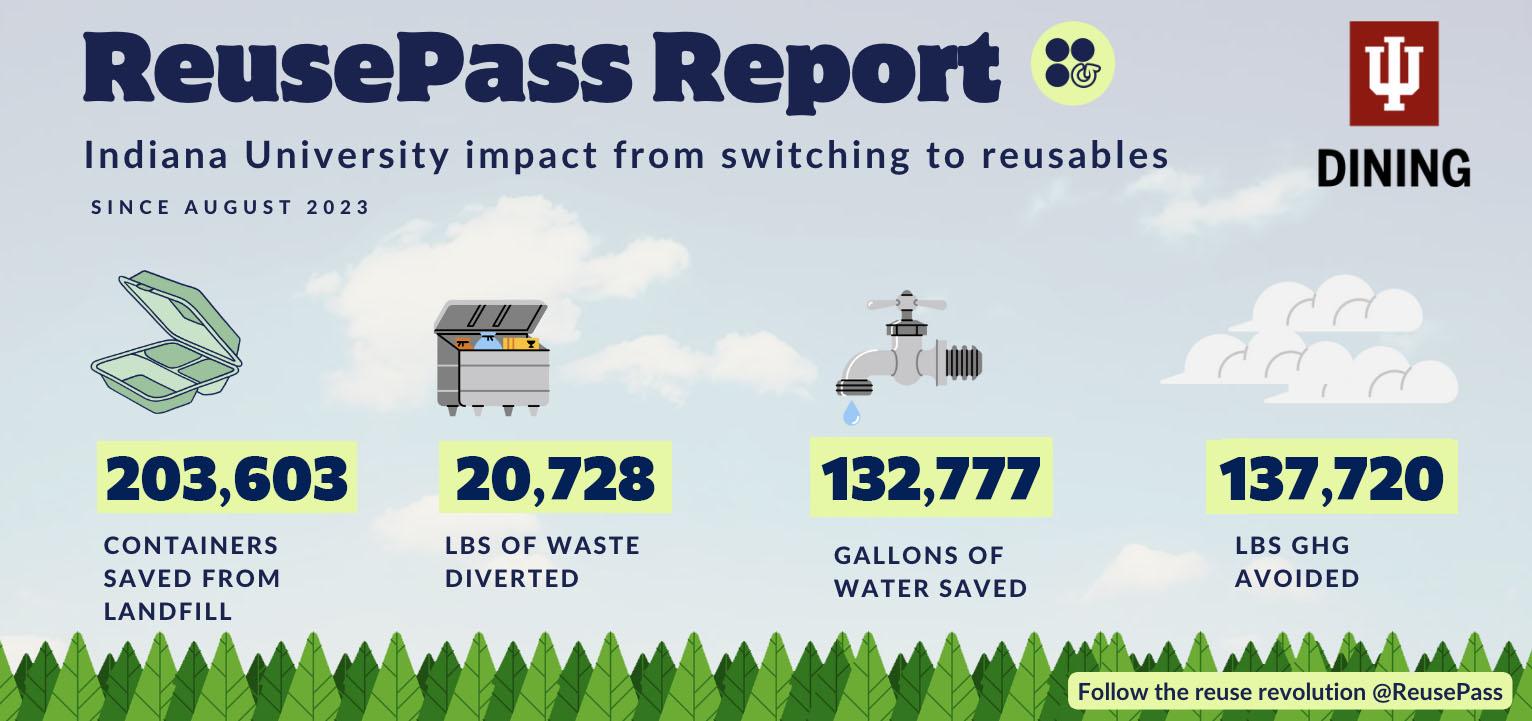IU Dining cares about students and the planet. Here’s how we’re making a difference:
Social responsibility
Eco-friendly practices
- Compostable carryout containers cut down on waste.
- Use of real plates and silverware at all You Care to Eat locations keeps excess trash out of the landfill.
- The Reuse Pass program at Collins offers green containers that can be sterilized and used up to 40 times!

Take Less, Waste Less
At All You Care to Eat dining halls, we encourage you to start with a small portion and go back for more if you're still hungry. This simple idea dramatically helps reduce food waste—and you can always get seconds.
Local favorites on campus
Use your meal plan to enjoy food from local restaurants and vendors on campus! Options include:
- The Globe, serving meals from rotating international restaurants at the IMU, Eigenmann, and Bookmarket
- Poke by Sushi King at Hodge Cafe and Read
- Lantern at the IMU
- BlenzBowls and King’s Hawaiian at Bookmarket
IU partners with local farms and businesses like Fischer Farms, Prairie Farms, Scholar's Inn, Cahokia Rice, and Breadworks to bring you fresh, local ingredients.
IU Dining brings local food trucks to areas with limited food service.
Food support
All IU meal plans include unlimited access to All You Care to Eat dining halls. You’ll find:
- Breakfast, lunch, and dinner
- Vegan and vegetarian options
- Global flavors
- Halal options at select locations


